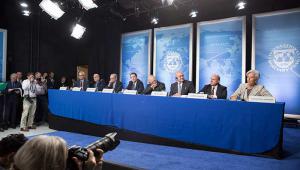In a statement released today, the bank highlighted that Asian nations accounted for over 60% of the estimated $5.6tn that developing countries are thought to have lost to illicit tax flows between 2001-10. It confirmed that it was committed to helping its members adopt best practice in light of recent global developments.
Clare Wee, head of the office of anti-corruption and integrity at the ADB, said that tax evasion, including the misuse of offshore structures to conceal wealth, deprives countries of badly needed income. It also provides a vehicle for other illicit activities like money laundering and terrorism financing, she said.
The use of secretive companies based in tax havens to shirk tax dues was brought to the fore in the publication of the Panama Papers, 11.5 million leaked documents from Panamanian-based law firm Mossack Fonseca. The leak sparked global outrage and renewed calls for transparency.
Wee said that as an international financial institution, the ADB has a global and regional role to play in promoting global tax transparency. She added the bank should help its member states combat such forms of tax evasion and protect their domestic tax bases.
The bank pointed out that a number of its members lack the capacity and expertise to comply with international standards on transparency. It was therefore hard for them to protect their tax bases against individuals and firms that aggressively plan their tax arrangements to lower their bills.
The policy update is designed to help such countries implement best practice and assess the risk of tax evasion and other integrity issues.
It includes measures to strengthen tax integrity at country and project levels. It also includes a commitment to provide technical assistance to ADB’s developing member countries to help them stem evasion and participate in global initiatives that might otherwise be out of their reach.
The main such initiative is the OECD’s Base Erosion and Profit Shifting (BEPS) recommendations, announced last year, which intend to overhaul the international tax architecture and close the loopholes exploited by multinational firms to avoid paying taxes.
While credited as a step forward, the BEPS project has been criticised for not going far enough, for putting the interests of the OECD’s wealthy members ahead of developing countries, and for being difficult for countries with low capacity to employ.
The ADB said its policy will support the work of the OECD, as well as other global initiatives including the Global Forum on Tax Transparency and Exchange of Information for Tax Purposes, and the United Nations.
The update will now go to the ADB’s board of directors for consideration and approval, which will be expected in the fourth quarter of 2016.













